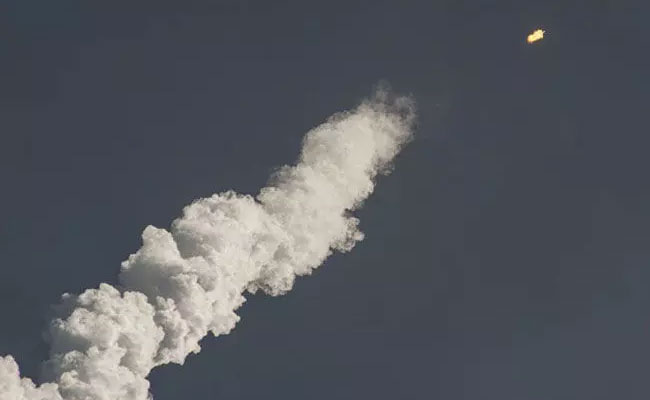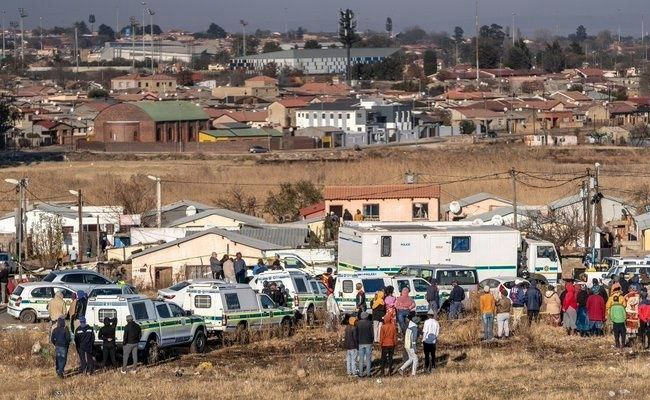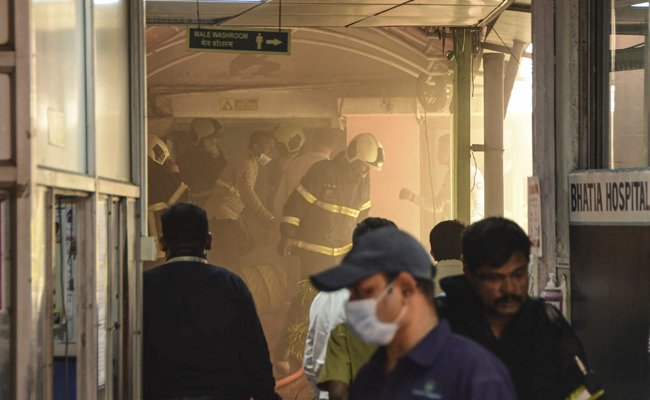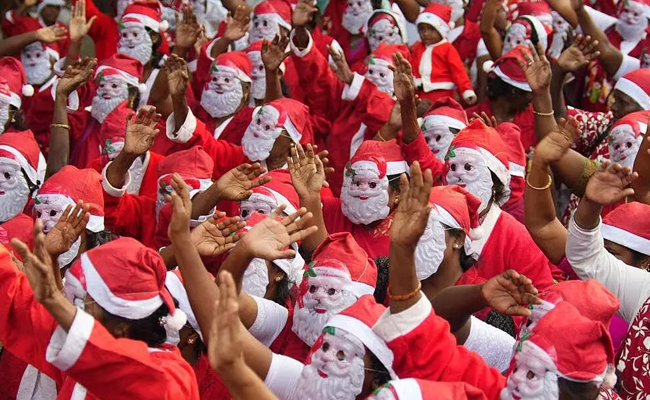Dubai(AP/PTI): Yemen's Houthi rebels for the first time on Tuesday claimed missile and drone attacks targeting Israel, drawing their main sponsor Iran closer into the ongoing Israel-Hamas war in the Gaza Strip.
The Houthis had been suspected of an attack earlier this month targeting Israel by sending missiles and drones over the crucial shipping lane of the Red Sea, an assault that saw the US Navy shoot down the projectiles.
This time on Tuesday, however, Israel said its own fighter jets and its new Arrow missile defence system shot down two salvos of incoming fire hours apart as it approached the country's key Red Sea shipping port of Eilat.
The Houthis, who have held Yemen's capital, Sanaa, since 2014 as part of that country's ruinous war, claimed three attacks on Israel in a later military statement, without elaborating on the timeframe of the operations and whether Tuesday's salvos represented one or two attacks.
Beyond the attack that saw the US shoot down missiles, there had been a mysterious explosion Thursday that hit the Egyptian resort town of Taba, near the border with Israel. The blast, which Egyptian authorities have not explained, wounded six people.
"Our armed forces launched a large batch of ballistic missiles and a large number of drones at various targets of the Israeli enemy," Houthi military spokesman Brig. Gen. Yahya Saree said in a televised statement. "The Yemeni Armed Forces confirm that this operation is the third operation in support of our oppressed brothers in Palestine and confirm that we will continue to carry out more qualitative strikes with missiles and drones until the Israeli aggression stops."
For Israel, Tuesday's attack marked an incredibly rare reported in-combat use of the Arrow missile defence system, which intercepts long-range ballistic missiles with a warhead designed to destroy targets while they are in space, according to the Washington-based Center for Strategic and International Studies.
"All aerial threats were intercepted outside of Israeli territory," the Israeli military said. "No infiltrations were identified into Israeli territory."
Saree did not identify the specific weapons used in the attack. However, the use of the arrow suggests it was a ballistic missile. The Houthis have a variant of its Burkan ballistic missile, modeled after a type of an Iranian missile, believed to be able to reach over 1,000 kilometers to strike near Eilat.
It wasn't clear whether American naval forces in the region saw the incoming fire, as the troop-and-aircraft-carrying USS Bataan and other elements of its strike group likely are in the Red Sea now, along with other US vessels. The US Navy's 5th Fleet, which patrols the Mideast, referred questions on Tuesday's attack to the Pentagon. Officials there did not respond to a request for comment.
Saudi Arabia also did not respond to questions. The kingdom saw four of its soldiers killed in its southern Jazan province in recent days in fighting with the Houthis, according to a report Tuesday by Bloomberg citing anonymous sources. That's even as Saudi Arabia has tried for months to reach a peace deal with the Houthis after a yearslong deadlock war against them.
The Houthis' declaration further draws Iran into the conflict. Tehran has long sponsored both the Houthis and Hamas, as well as the Lebanese group Hezbollah, which continues to trade deadly cross-border fire with the Israelis.
Iran's mission to the UN did not immediately respond to a request for comment on the Houthi attacks.
Let the Truth be known. If you read VB and like VB, please be a VB Supporter and Help us deliver the Truth to one and all.
Johannesburg (AP): A 32-year-old suspect has been arrested in connection with a mass shooting which claimed the lives of 12 people including three children at an unlicensed pub earlier this month, South African police said on Monday.
The man is suspected of being one of the three people who opened fire on patrons in a pub at Saulsville township, west of South Africa's capital Pretoria, killing 12 people including three children aged 3, 12 and 16.
At least 13 people were also injured during the attack, whose motive remains unknown.
According to the police, the suspect was arrested on Sunday while traveling to Botlokwa in Limpopo province, more than 340 km from where the mass shooting took place on Dec 6.
An unlicensed firearm believed to have been used during the attack was recovered from the suspect's vehicle.
“The 32-year-old suspect was intercepted by Limpopo Tracking Team on the R101 Road in Westenburg precinct. During the arrest, the team recovered an unlicensed firearm, a hand gun, believed to have been used in the commission of the multiple murders. The firearm will be taken to the Forensic Science Laboratory for ballistic analysis,” police said in statement.
The suspect was arrested on the same day that another mass shooting at a pub took place in the Bekkersdal township, west of Johannesburg, in which nine people were killed and 10 wounded when unknown gunmen opened fire on patrons.
Police have since launched a search for the suspects.
South Africa has one of the highest homicide rates in the world and recorded more than 26,000 homicides in 2024 — an average of more than 70 a day. Firearms are by far the leading cause of death in homicides.
The country of 62 million people has relatively strict gun ownership laws, but many killings are committed with illegal guns, according to authorities.
According to police, mass shootings at unlicensed bars are becoming a serious problem. Police shut down more than 11,000 illegal taverns between April and September this year and arrested more than 18,000 people for involvement in illegal liquor sales.





